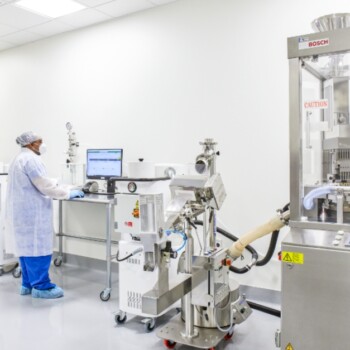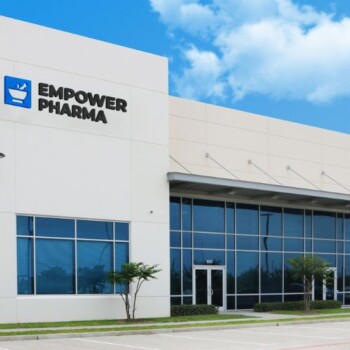Article Summary
The article delves into how compounding pharmacies like Empower Pharmacy mitigate drug shortages by creating customized medications. It discusses the challenges posed by drug shortages and the importance of compounding in meeting patients' unique needs during supply disruptions. Empower Pharmacy's expertise in compounding enables them to provide tailored solutions and ensure patients receive the medications they require, even amidst shortages.What is a Drug Shortage?
A drug shortage as defined by the FDA’s Federal Food, Drug, and Cosmetic Act is “when the demand or projected demand for the drug within the United States exceeds the supply of the drug.”[1] There are many reasons that a drug can go into shortage, including but limited to problems with manufacturing quality, production delays, and supplier delays. For example, supply chain issues such as a delay in the delivery of raw materials and components to a business may cause a shortage. Discontinuations are another element that causes shortages.
When a medication becomes less popular there are fewer companies producing it; there are fewer production lines that can produce these drugs. Due to capacity difficulties at their plants, the raw material suppliers the companies use are likewise constrained in the quantity they can produce. Older sterile injectables are susceptible to shortages because there are so few manufacturers making them, their production capacity is strained, and the manufacturing process is difficult and time-consuming. [2][3] The remaining businesses find it challenging to swiftly expand output when one company experiences a problem or shuts down, which results in scarcity.
Where Do I Find Drug Shortage List?
The FDA posts drug shortages on their website and another resource is the ASHP Shortage list. Both FDA and ASHP work closely in sharing information and providing the most current information. However, they differ in their audience: the FDA speaks to the general public while ASHP has a deeper connection specifically to healthcare practitioners. [4] For a compounding pharmacy to produce something on a shortage list, it must be present on the FDA list. Commercial manufacturers provide the FDA with information on drug shortages and the agency works closely with them to prevent or reduce the impact of shortages.
What is the Impact of Drug Shortages?
According to a 2023 Homeland Security and Governmental Affairs report, by the end of 2022 there were 295 active medicine shortages in the United States. [4][5] The report goes on to describe economic factors, a lack of insight into the supply chain, and persistent U.S. overdependence on foreign and geographically concentrated sources for drugs and their raw ingredients. These shortages have a ripple effect on patient care; they delay diagnosis and raise the possibility of prescription errors due to substitution of medications.
How Can a Drug Shortage Increase the Risk of Prescription Errors?
Drug shortages increase the potential for prescription mistakes for the following five reasons:
- Substitution of medications: During a drug shortage, healthcare providers may need to substitute one medication for another due to limited availability. This substitution process can increase the likelihood of errors if the healthcare provider is not familiar with the alternative medication or if there are differences in dosing, administration, or potential interactions.
- Lack of familiarity: Drug shortages may lead to the use of medications that healthcare providers are less familiar with. This lack of familiarity can increase the chances of prescribing errors, such as incorrect dosing, frequency, or route of administration.
- Increased workload and stress: Drug shortages can place additional burdens on healthcare providers, including increased workload and stress. Under these circumstances, healthcare professionals may be more prone to errors due to fatigue, time pressure, and distractions.
- Look-alike or sound-alike medications: In situations where the prescribed medication is not available, healthcare providers may need to choose a substitute that has a similar name or appearance to the original medication. This similarity can increase the risk of confusion and medication errors, particularly if the healthcare provider is rushed or under pressure.
- Limited information and resources: During a drug shortage, there may be limited information available on alternative medications, their dosages, or potential adverse effects. This lack of information can contribute to prescribing errors and increase the risk of adverse events.
Has There Been a Rise in Shortages Lately?
The US saw a 30% rise in drug shortages between 2021-22.[5] Healthcare providers can proactively stay informed about the latest developments related to any drug shortage, by monitoring updates from the FDA or changes in the availability of certain medications. They may need to change treatment plans or prescribe different medications to ensure that their patients receive the best possible care.
How Can Compounding Pharmacies Help in a Drug Shortage?
When drug shortages affect the supply of certain medications, a compounding pharmacy can ensure patients still have access to the medication they need. They can help by developing specialized drugs, ensuring patients have access to the medications they need. They can also combine or change ingredients to meet a patient’s specific needs or create drugs that are in short supply. For example, sodium bicarbonate injection is listed on the FDA drug shortage list, and compounding pharmacies like Empower provided patients with what they needed. Additionally, around 2020, hydroxychloroquine, a lupus medicine, was on shortage and Empower Pharmacy offered it temporarily as a compounded alternative to help patients (note: Empower no longer compounds this).[6][7][8][9][10]
Compounding Pharmacies: A Case for Alternatives
During a drug shortage, demand for compounding pharmacies increases. Healthcare providers might engage with them to identify alternative medications or formulations that can be compounded to help address the shortage. Either way, it’s essential for compounding pharmacies to follow strict quality and safety standards. The FDA allows compounding pharmacies to temporarily create copies of medications that are in short supply at either a 503B outsourcing facility or a 503A compounding pharmacy. The way compounding pharmacies function in a drug shortage is to collaborate with healthcare providers and regulatory agencies to help make sure patients have access to safe and effective medications, even when supplies are limited.
Finding Quality Resources in Drug Shortages
PCAB® Accredited for Patient-Specific Prescriptions
For patient-specific prescriptions, a 503A compounding pharmacy is often run as a smaller business, locally operated. It’s important to understand who is making compounds and how to measure the quality of what they produce. One way of doing this is to find a PCAB® Accredited pharmacy that voluntarily goes beyond industry requirements and has achieved rigorous accreditation from the Pharmacy Compounding Accreditation Board, demonstrating a commitment to high standards for people, processes, and products.
CGMPs & FDA-Registration for Outsourcing Facilities
Compounded drugs manufactured for office use do not require a prescription like those intended for patient-specific prescriptions. A 503B outsourcing facility (manufactures in bulk) follows Current Good Manufacturing Practice regulations, which are a set of guidelines enforced by the FDA. With the proper supervision of manufacturing activities, CGMP standards ensure the identification, strength, quality, and purity of drug products.
- Commissioner, O. of the. (2018, March 29). Federal Food, Drug, and Cosmetic Act (FD&C Act). U.S. Food and Drug Administration. https://www.fda.gov/regulatory-information/laws-enforced-fda/federal-food-drug-and-cosmetic-act-fdc-act
- U.S. Food DA. (2023, April 6). Frequently Asked Questions About Drug Shortages. https://www.fda.gov/drugs/drug-shortages/frequently-asked-questions-about-drug-shortages
- Shukar S, Zahoor F, Hayat K, Saeed A, Gillani AH, Omer S, Hu S, Babar ZU, Fang Y, Yang C. Drug Shortage: Causes, Impact, and Mitigation Strategies. Front Pharmacol. 2021 Jul 9;12:693426. doi: 10.3389/fphar.2021.693426. PMID: 34305603; PMCID: PMC8299364. https://www.ncbi.nlm.nih.gov/pmc/articles/PMC8299364/
- ASHP. (n.d.). FDA and ASHP Shortage Parameters. ashp.org. https://www.ashp.org/drug-shortages/current-shortages/fda-and-ashp-shortage-parameters?loginreturnUrl=SSOCheckOnly
- Peters, G. (2023, March 22). Short Supply The Health and National Security Risks of Drug Shortages. Homeland Security and Governmental Affairs. https://www.hsgac.senate.gov/wp-content/uploads/Drug-Shortages-HSGAC-Majority-Staff-Report-2023-03-22.pdf
- Lupus Foundation of America. (2020, March 31). FDA Recognizes Hydroxychloroquine and Chloroquine Shortages. Lupus Foundation of America. https://www.lupus.org/news/fda-recognizes-hydroxychloroquine-and-chloroquine-shortages
- Drug Information Service of the University of Utah . (2022, June 14). Hydroxychloroquine Sulfate Tablets. ASHP’s Drug Shortages Database. https://www.ashp.org/
- US Food & Drug Administration. (n.d.). FDA drug shortages. FDA Drug Shortages. https://www.accessdata.fda.gov/scripts/drugshortages/default.cfm
- Commissioner, O. of the. (2020, March 31). Coronavirus (COVID-19) update: Daily Roundup March 31, 2020. U.S. Food and Drug Administration. https://www.fda.gov/news-events/press-announcements/coronavirus-covid-19-update-daily-roundup-march-31-2020
- Christina M. Bookwalter, P. (2021, February 12). Drug shortages amid the COVID-19 pandemic. U.S. Pharmacist – The Leading Journal in Pharmacy. https://www.uspharmacist.com/article/drug-shortages-amid-the-covid19-pandemic




